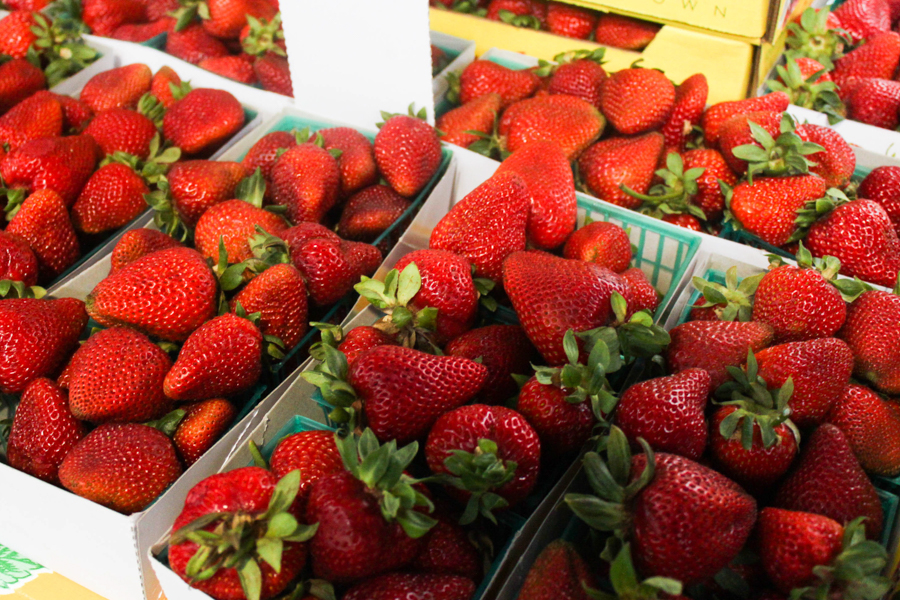
Varieties include drought-resistant, more flavorful, insect-repellent strawberry breeds
UC Davis’ multimillion dollar Strawberry Breeding Program continues to innovate new breeds of strawberries to improve upon taste, quality and disease resistance.
At any given time, graduate students, postdoctoral scholars and faculty members work on thousands of strawberry strains. These scholars are currently growing 68 experimental varieties at Elkhorn Berry Farms in Watsonville, CA. Nine breeds of strawberries developed through UC Davis’ program are grown commercially in Monterey.
The program uses natural breeding techniques to create new strains of strawberries targeting certain traits that the program’s scientists hope to improve, such as flavor or drought-tolerance.
“Part of our charge is to also start bringing other [molecular genetic] tools to strawberry breeding. That could mean fingerprinting and also identifying genes that affect different traits like disease resistance or food quality,” said Glen Cole, staff research associate for the Strawberry Breeding Program.
Strawberries are highly susceptible to soil-borne pathogens, and farmers previously relied on methyl bromide to protect their harvests, which has been recently outlawed. In response to the banning of the fumigant, the Strawberry Breeding Program developed a berry with improved genetic resistance to soil-borne disease. Other experiments will focus on making the berry more drought-tolerant and disease and insect repellent.
The program also worked to improve the quality and taste of the berries.
“We’ll be conducting consumer surveys and working with sensory panels from the Robert Mondavi Institute to make sure all our varieties are full of flavor,” said postdoctoral scholar Julia Harshman. “Flavor reigns in apple breeding. I want to bring that same attention to taste to strawberries.”
Director of the program Dr. Steven Knapp recently made improvements on the Strawberry Breeding Program, including hiring additional program staff and organizing the construction of a new lab this coming fall to assist with complex DNA work. The revitalization will allow an expansion and even more research to be completed.
Some of the strawberry varieties developed specifically focused on sustainable growth, helping to put UC Davis at the forefront of the industry.
Tom AmRhein, a member of the California Strawberry Commission, noted that the strides UC Davis makes within its Strawberry Breeding Program benefit growers across the entire berry-growing industry.
“Growers are happy about the new focus and positive energy the team is bringing to the program. And because everything they develop is available to all strawberry growers, it protects the viability and sustainability of the whole industry,” AmRhein said in a press release.
Despite lawsuits in the past, the UC Davis Strawberry Breeding Program continues to produce new breeds of berries that work to improve the industry.
“California produces 80-plus percent of the strawberries that are consumed in the United States. The industry is also a world-wide industry and traditionally the UC program has provided genetics and cultivars that are used around the world,” Cole said. “It’s all about impacting and helping the strawberry industry.”
Written by: Lindsay Floyd – campus@theaggie.org








